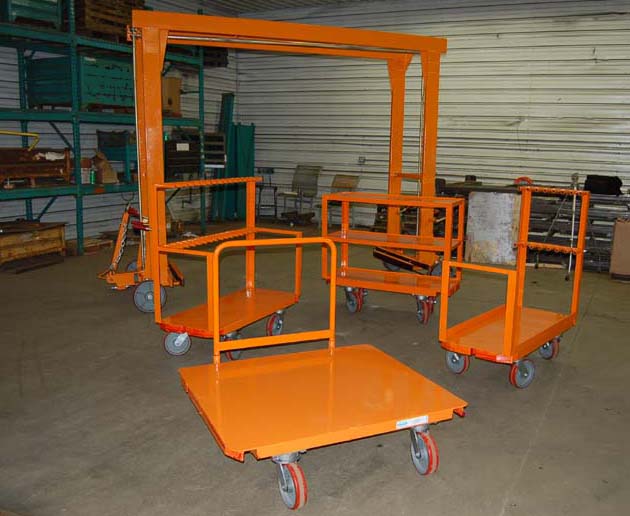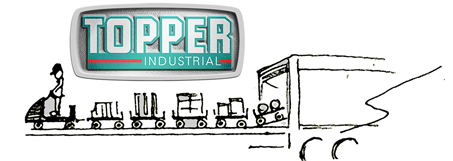The industry has begun developing standard and accepted metrics to assess environmental impact. As consumers become better understanding of the environmental consequences of the products they purchase, transportation and material handling companies continue working toward reducing energy use and environmental footprint.

Josh Bond, Senior Editor of Modern Materials Handling shared that when the Great Recession barreled through the materials handling industry, companies scrutinized cost centers once assumed to be fixed aspects of doing business and found a number of operational efficiencies. Best practices in operational sustainability are becoming ingrained in business cultures.
More manufacturers and distribution center executives have added sustainability as a key element to their business focus. Whether centered around managing a carbon footprint or pursuing continuous improvement, sustainability encompasses everything from fuel efficiency to the landfill impact of manufacturing each component of a lift truck.

Engineers for lift truck manufacturers are therefore working to reduce the amount of energy the lift truck uses. Sustainability is the utilization of resources that can be regenerated as opposed to the absolute consumption of fossil fuels. The fork truck is still operational, but as efficiency and productivity is mandated; incremental improvement will migrate to fork truck free environments.

The fork truck free approach will work for any company that operates production lines and processes that are normally fed materials using forklifts; many leading distribution centers are considering driverless options. Safety was the initial driver of the FTF movement with material handling equipment including industrial carts, conveyors, lifts, lifts & tilts, shipping racks, containers, casters, and cart components. Products that keep material moving from the dock to the cart to the assembly line emphasizes the importance of ergonomics and safety as top priority.
While often lagging adopters, distribution centers are embracing the value proposition of Fork Truck Free as a key factor in sustainability. More than 50 percent of all new distribution centers have a statement requiring that all new lines will be FTF. The need for creative, innovation innovative solutions is in direct proportion with the demands of complexity, kitting, and efficiency while increasing safety, reducing line-side inventory, delivering parts accurately, and increasing quality.
Market acceptance of electric forklifts has steadily increased in the last decade, according to the Electric Power Research Institute (EPRI), with electric forklifts representing 64 percent of the U.S. market. In addition to offering cost and performance benefits, electric forklifts also enable companies a way to enhance their environmental profile.

Greatly reduce emissions:
For every 10,000 hours of use, internal combustion (IC) engine-powered forklifts emit 120,000 more pounds of carbon emissions than electric-powered forklifts, according to as claimed by EPRI. In fact, according to the U.S. Department of Energy (DOE) GREET Life Cycle calculator, electric forklifts produce the lowest well-to-wheel greenhouse gases of any forklift.
Reduce energy usage:
With almost no emissions, there is no need to ventilate exhaust, reducing energy usage. Electric forklifts also generate very little heat, compared to IC forklifts. This reduces the strain on warehouse temperature-control units and the cost for cooling and air conditioning.
In the fork truck free space there are no engine, transmission or coolant fluid changes and no need to dispose of used fluids, oil and filters. Furthermore, batteries may be recycled. More than 98 percent of all battery lead is recycled.
Reduce noise pollution:
An electric forklift does not produce engine noise, allowing the operator to hear better for enhanced operation and safety.
Increase floor space:
Fork truck free manufacturing shop floors do not present the same hazards that come with storing liquid fuels on-site.
About Topper Industrial
For more than twenty years, Topper Industrial, (www.topperindustrial.com) based just outside of Milwaukee, WI, has been a leader in the material handling equipment industry. The company’s product roster features industrial carts, conveyors, lifts, lifts & tilts, shipping racks, containers, casters, and cart components. From mother-daughter carts to quad steer carts to tilt carts and rotate carts, Topper’s material handling solutions make delivering material line side more effective through more efficient practices. Topper Industrial has a team of experienced professional experts able to assess and provide the right product for all material handling equipment requirements.
Topper Industrial is a proud member of MHI. Follow on Twitter @TopperInd or on LinkedIn.

